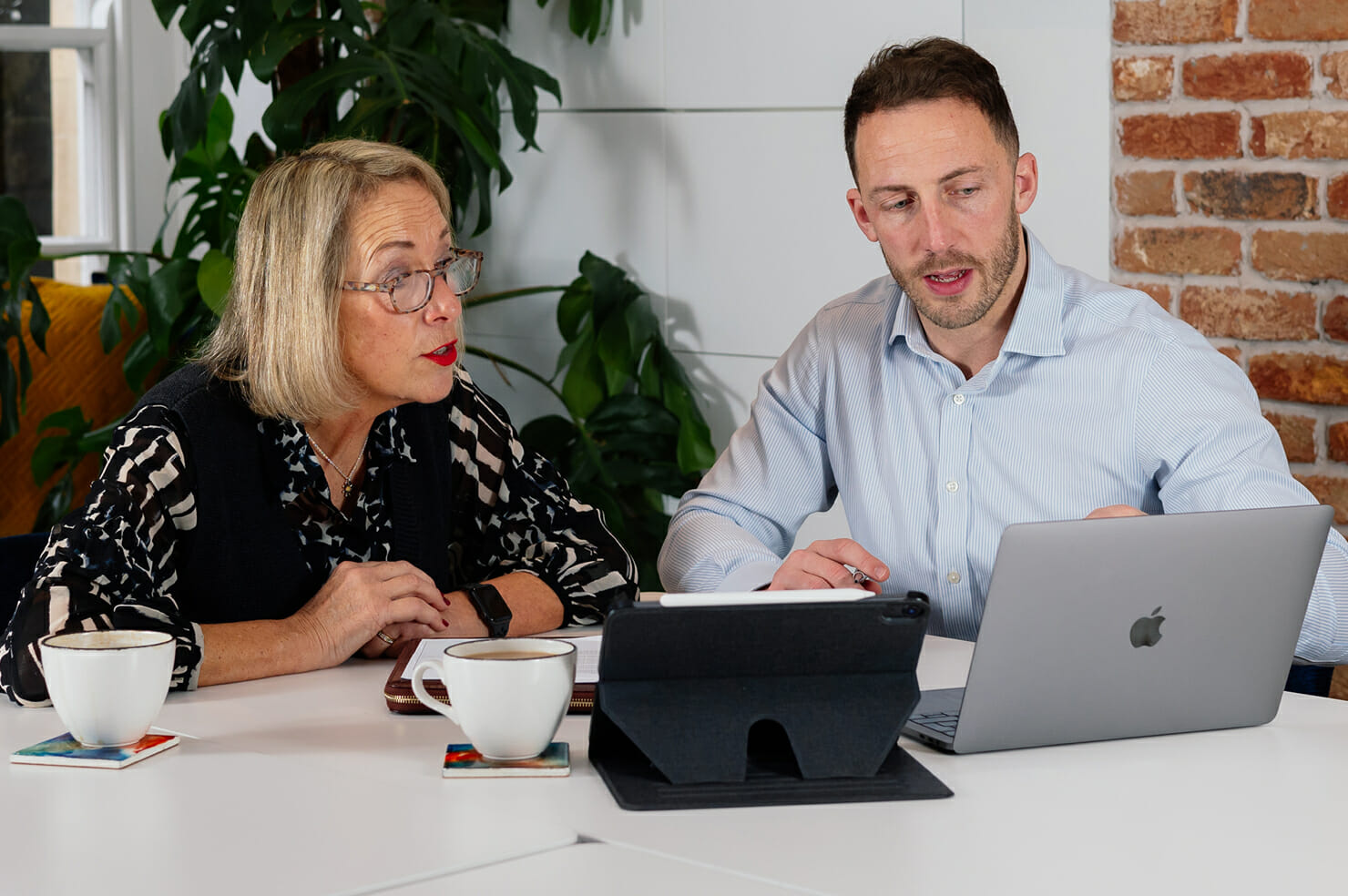Modified on: July 2024
The Basics of Early Retirement: A Comprehensive Guide with Essential Resources

The Basics of Early Retirement: A Comprehensive Guide with Essential Resources
Thinking about early retirement can be exciting but also daunting. The concept of early retirement in the UK has changed a lot over the years. Traditionally, people retired at a certain age, but now it’s about achieving financial freedom sooner. Early retirement means more years to enjoy life beyond work. However, this goal requires careful planning and intelligent financial decisions.
To retire early, you need to create a solid master plan. Start by working out your basic retirement budget and understanding how much you spend on essentials. Every extra year of early retirement could cost you more due to spending, less earnings, and less compound interest growth. Consulting a financial advisor can help you assess if you can afford to stop working earlier than planned.
There are risks and challenges you should consider as well. For example, withdrawing money from your pension can lead to high tax charges if incorrectly structured. Therefore, early retirement is not just about the financial aspects but also about planning your new lifestyle and managing potential risks effectively.
Key Takeaways
- Early retirement means enjoying more freedom beyond work.
- Creating a retirement budget is essential for successful early retirement.
- Consider the risks and financial challenges carefully before retiring early.
Defining Early Retirement and Its Benefits

Early retirement is an increasing trend, with many seeking to achieve financial freedom and a better work-life balance by retiring before the traditional retirement age. Understanding the concept of early retirement and its advantages can help you make informed decisions.
What is Early Retirement?
Early retirement means leaving your job and stopping regular work before the typical retirement age, generally 65. Most pension schemes allow you to start taking money from your pension pot after age 55, although this will increase to 57 from 2027 (and after that, it will be ten years before the State Pension Age).
Advantages of Early Retirement
Early retirement offers several benefits that can significantly enhance your quality of life. One significant advantage is increased personal time. This extra time allows you to pursue passions, hobbies, and interests without the constraints of a full-time job.
Additionally, retiring early means enjoying life while you still have the youth and energy. Increased free time allows for travel, volunteering, or even starting a new venture without financial pressures.
Moreover, early retirement can lead to improved health. Without the daily stress of work, many people find they are healthier and happier, able to focus on fitness and well-being.
Considering Personal Reasons and Goals
Before deciding on early retirement, it’s essential to consider your reasons and goals. Assess if early retirement aligns with your long-term plans and whether you have sufficient financial resources to support this lifestyle.
You should also consider what to do with the extra time and how it will impact your social life. For example, spending more time with family, engaging in personal projects, or even taking up part-time work in a different field can be fulfilling.
Make sure to evaluate your financial situation carefully. Resources such as your current savings, potential pension drawdowns, and other retirement benefits like those outlined by the UK Government should be considered. Planning meticulously ensures you enjoy a stress-free and financially secure early retirement.
By considering all these aspects, you can make a well-informed decision about early retirement and effectively balance your personal and financial goals.
Early Retirement Planning: Creating the Master Plan
Achieving early retirement in the UK requires careful planning and strategic decisions. You must understand your financial standing, set clear goals, and make informed choices about pensions and investments.
Assessing Your Financial Situation
Start by evaluating your current financial status. This includes calculating your total savings, outstanding debts, and monthly expenses. Knowing how much you spend each month helps you figure out how much you’ll need for retirement. Use a budget spreadsheet to break down your income and expenses. This overview helps you identify areas where you can save more or cut costs.
Ensure you have an emergency fund that covers 3-6 months of living expenses. This buffer can protect you from unexpected financial hits during your retirement planning phase.
Setting Financial Goals for Retirement
Define clear financial goals. Determine the age you want to retire and how much money you’ll need annually. Consider inflation and increased healthcare costs as you age. Break down your retirement goals into short-term and long-term objectives.
Use retirement calculators to estimate your retirement pot. This helps you understand how much more you need to save each month. Consult with a financial adviser to develop a realistic savings plan that aligns with your goals and lifestyle.
Understanding the Role of Pensions
Pensions are critical in your retirement plan. In the UK, you can start drawing your State Pension at age 66, although this is set to rise to 67. The State Pension provides a basic income, but it might not be enough for your desired lifestyle.
You should also review your private and workplace pensions. Some private pension plans allow early withdrawal at 55, but withdrawing early can have significant implications. You may also receive a tax-free lump sum from your pension pot, which can be used to invest or pay off debts.
Investing Wisely for Growth
Investing is essential to grow your retirement savings. Consider a mix of low-risk and high-risk investments. Stocks, bonds, and mutual funds are standard investment vehicles. Ensure diversification to reduce risk. A financial adviser can help you balance your portfolio effectively.
One option is to use an Individual Savings Account (ISA). An ISA allows you to save or invest up to a certain amount each year without paying tax on the returns. This is beneficial for long-term growth.
Considering Tax Implications and Vehicles
Understand the tax implications of your retirement savings and withdrawals. Early pension withdrawals can incur high taxes. For example, accessing your pension before 55 could result in a tax charge of up to 55%.
Explore tax-efficient savings vehicles like ISAs and pensions. Seek advice on how to optimise your tax situation to enhance your savings. Planning for taxes can significantly impact your retirement pot and ensure you get the most from your investments.
Budgeting and Spending: Managing Your Money
Organising your finances for early retirement requires a solid plan. This includes creating a budget, cutting living costs, ensuring healthcare coverage, and bridging the gap before pension withdrawals.
Creating a Retirement Budget
Start by outlining your expected income and expenses once you retire. Include all sources of income, such as pensions, savings, and investments. Then, list your monthly and yearly expenses, such as utilities, groceries, and leisure activities. Having a clear retirement budget lets you see where adjustments are necessary.
A detailed budget helps you manage unexpected costs and maintain your lifestyle. Regularly review and update your budget to reflect any changes in your financial situation.
Minimising Living Costs and Debts
Reducing living costs is crucial for financial stability. Consider downsizing your home to lower your mortgage or rent. Look at your monthly outgoings and identify areas where you can cut back, such as subscriptions or luxury purchases.
It’s also essential to manage and reduce debt where possible. Paying off high-interest debts first can save you money in the long run and improve your financial health during retirement. Check out these practical strategies for budgeting in retirement for more tips.
Investing in Healthcare
Healthcare costs can be a significant part of your retirement budget. Prioritise spending on health insurance and regular medical check-ups. Consider setting aside a portion of your savings specifically for medical emergencies.
Investing in healthcare early can help you avoid higher costs later. Always review your health insurance options and choose a plan that offers the best coverage for your needs. This ensures your healthcare costs are manageable and less of a burden on your retirement finances.
Bridging the Gap Before Pension Withdrawals
If you retire before retirement, you will need a plan to cover your expenses until you can withdraw from your pension. This could involve using savings or investments that are easy to access.
You might also consider part-time work or freelance opportunities to generate income. Creating a bridge fund helps you maintain financial stability and ensures you don’t deplete your retirement savings prematurely. Learn more about protecting your retirement income and planning for these transitional periods.
Focusing on these key areas allows you to manage your money effectively throughout your retirement and enjoy a comfortable lifestyle.
Lifestyle Considerations in Early Retirement
Preparing for early retirement involves planning for your daily lifestyle, balancing personal interests, managing care costs, and ensuring mental and social well-being.
Retirement Lifestyle Choices
When you retire early, your daily routine will change drastically. Some people opt to travel extensively, while others prefer to stay close to home. Your choice will impact how you structure your days and spend your money. Ensure you budget for any activities you wish to pursue regularly.
Consider the pace at which you want to live. Do you prefer an active or relaxed lifestyle? If travelling frequently, research how much this will cost annually. If you stay home, think about home improvement projects or local activities.
Hobbies, Passions, and Personal Development
Having more free time means you can indulge in hobbies and passions. This might involve gardening, painting, writing, or learning new skills. Early retirement is a golden opportunity to dive deeper into these interests.
Identify what truly excites you and consider any costs involved. For example, if you’re passionate about photography, factor in the equipment cost and potential travel for capturing scenes. Joining clubs or taking classes can be both enjoyable and socially engaging.
Dealing with Care Costs
Health care is a significant consideration. While the NHS covers many basic health needs in the UK, early retirees might still face out-of-pocket expenses. Costs can include private insurance to cover aspects not provided by the NHS.
Planning for future care needs is crucial. Long-term care fees can be substantial. Understand the different types of care options available and set aside savings specifically for this. Early planning can help avoid financial strain later on.
Navigating the Risks and Challenges
Early retirement sounds appealing, but it’s crucial to consider risks such as inflation, how long you will live, legislative changes, and the sacrifices you must make. These factors can significantly affect your retirement plans.
Understanding the Impact of Inflation
Inflation reduces your purchasing power over time. When you retire early, you need to plan for an extended period where your savings will have to keep up with rising costs. Inflation can erode your financial security if you rely solely on a fixed income, such as a pension.
You might need to invest in assets that outpace inflation. Property, stocks, and bonds are examples. Without proper planning, inflation can make it challenging to maintain your standard of living throughout your retirement.
Longevity Risk and Life Expectancy
Living longer is both a blessing and a challenge. Retiring at 55 means you might need your savings to last 30 years or more. Underestimating your life expectancy can result in depleting your funds too early.
You need to account for healthcare costs, which increase with age. Consider diversifying your investments and possibly seeking advice from a financial advisor to ensure your funds are sufficient. For more information on how to manage this, you can look at early retirement in the UK.
Changes in Legislation and Benefits
Legislation regarding pensions and retirement benefits can change. Early access to pension pots is currently allowed from age 55, but future changes could affect this. You must also understand the state pension age and how it fits into your retirement plan.
Changes could alter the value or accessibility of current entitlements. Regularly reviewing your retirement plan helps manage these risks. Refer to this pension withdrawal guide for insights into navigating these legislative risks.
The Realities of Sacrifice on the Path to Retire Early
Early retirement requires financial sacrifices. You need to save a significant portion of your income and reduce current spending to build a sufficient nest egg. As explained in this step-by-step guide, you might also miss out on some years of compound interest.
Consider your lifestyle choices and how they will impact your future. Making informed decisions about your financial planning today can significantly impact your ability to retire early and comfortably. For more detailed planning tips, visit this guide to early retirement.
Frequently Asked Questions
To retire early, you must consider various financial strategies, calculate the amount needed, and understand core principles like those from the FIRE movement. Lifestyle changes and sustainable withdrawal plans are also crucial.
What strategies are effective for achieving financial independence to retire early?
Effective strategies include diligent budgeting, investing wisely, and reducing debt. Increasing savings by cutting unnecessary expenses can also help. Consistently saving and investing a significant portion of your income is essential. Tools like the Personal Assets and Liabilities Guide can help you keep track of your finances.
How can one calculate the amount needed to retire comfortably before the traditional retirement age?
To calculate the needed amount, consider your expected yearly expenses and multiply them by the years you plan to retire. Inflation and health care costs are also factors. Using a retirement calculator or consulting a financial adviser can be very useful. Ensuring you have enough saved to cover your expenses without running out of money is critical for early retirement.
What are the core principles of the FIRE (Financial Independence, Retire Early) movement?
FIRE focuses on saving and investing a large portion of your income, often 50% or more. The goal is to accumulate enough wealth so that the returns on your investments cover your living expenses. This approach is crucial to understanding the importance of compound interest and long-term investing. Every extra year of early retirement means more spending and fewer earnings, making disciplined financial planning necessary. Learn more about these principles in the step-by-step guide.
Which lifestyle changes can significantly impact one’s ability to retire early?
Adopting a frugal lifestyle can significantly impact your ability to save and invest more money. This might include downsizing your home, reducing discretionary spending, or finding more cost-effective ways to enjoy life. Prioritising necessities over luxuries can make a big difference. Focus on reducing monthly expenses to accelerate your savings rate.
How does one create a sustainable withdrawal plan from their retirement funds?
A sustainable withdrawal plan ensures you don’t outlive your savings. The commonly recommended strategy is the 4% rule, which requires you to withdraw 4% of your retirement savings annually. Adjust this rate based on your unique circumstances and market conditions. Consult resources like Aviva’s guide for more detailed advice.
What considerations should be considered when estimating the costs of early retirement?
Estimating costs involves considering both regular and unexpected expenses. Calculate living costs, healthcare, and potential long-term care. Factor in the possibility of needing to support dependents as well. It’s also essential to account for taxes and potential penalties, especially if you withdraw from pensions early. You may face tax charges if you access pension funds before age 55, as highlighted by Aviva.
Financial Advisor Bristol and Pension Advisor Clifton
Frazer James is an independent financial adviser Bristol so if you are seeking a financial advice and looking for investment planning experts Bristol, look no further. Frazer James will answer all your questions regarding income protection for directors or small business income protection insurance.
Need help with pensions advice or wealth management? Frazer James can help with that too.
If you want to talk to a Financial Advisor, we offer an Initial Consultation without cost or commitment. Meetings are held either at our offices, by video or by telephone. Our telephone number is 0117 990 2602.
Frazer James Financial Advisers is located at Square Works, 17 – 18 Berkeley Square, Bristol, BS8 1HB.
This article provides information about investing but not personal advice. If you’re unsure which investments suit you, please request advice. Remember that investments can go up and down in value; you may get back less than you put in.
About The Author
Related news


Get in touch
Schedule a free consultation with one of our financial advisers, or give us call.
0117 990 2602
 Client login
Client login  Retirement assessment
Retirement assessment  Book a consultation
Book a consultation  0117 990 2602
0117 990 2602 











